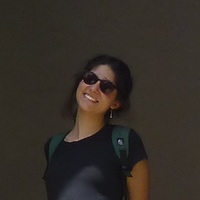Caterina Scalvedi
Wake Forest University, History, Department Member
- History, Education, Colonialism, Eritrean History, Istruzione, African Studies, and 16 moreHistory of Education in Eritrea, Horn of Africa, History Didactics, Eritrea, Italian colonialism, Histoire des Vaudois, Colonialism in Somalia, Somalia, Dodecanese, Italian Colonialism, Colonial Education, History of Missions, Colonialism and Christian Missions, Libya, Fascism, and World Historyedit
Research Interests:
This article explores the history of Italian-language education in Somalia from fascist rule through the early years of the UN Trusteeship (1922–50s). It relies on the rich unpublished documentation produced by Catholic missionaries, who... more
This article explores the history of Italian-language education in Somalia from fascist rule through the early years of the UN Trusteeship (1922–50s). It relies on the rich unpublished documentation produced by Catholic missionaries, who played a crucial role in the organization of schools throughout the period under examination. Under fascist rule (1922–41), the state did not issue any school-focused law, so missionaries remained the primary leaders in the organization of schools, refining social and conceptual engineering strategies intended to transform students, mostly orphans, into skilled workers. By the outbreak of World War II, missionaries had become the "experts" in education in Somalia. After a decade of tensions with British administrators, missionaries were tapped in the 1950s by the new Italian administration of the UN Trusteeship of Somalia to help create a postcolonial school system. The latter grew out of the preexisting missionary school network and incorporated colonial-era buildings, teachers, and pedagogic methods—thus sustaining these elements beyond the fascist period and into the new UN order. This history shows that missionaries acted as skilled migrant workers specialized in professional education under colonial and postcolonial regimes in northeast Africa, emphasizing the continuities in educational discourses and practices from the prewar to the postwar period. Ultimately, it uncovers the primary role nonstate grassroots actors played in the construction of Somalia, both as a colony and as a soon to be independent Trust Territory.
Link to full article: https://muse-jhu-edu.proxy.cc.uic.edu/issue/48880
Link to full article: https://muse-jhu-edu.proxy.cc.uic.edu/issue/48880
Research Interests:
Review: Guidi, Pierre, Éduquer la Nation en Ethiopie. École, État et identités dans le Wolaita (1941-1991), Rennes, Presses Universitaires de Rennes, 2020, 350 p.
